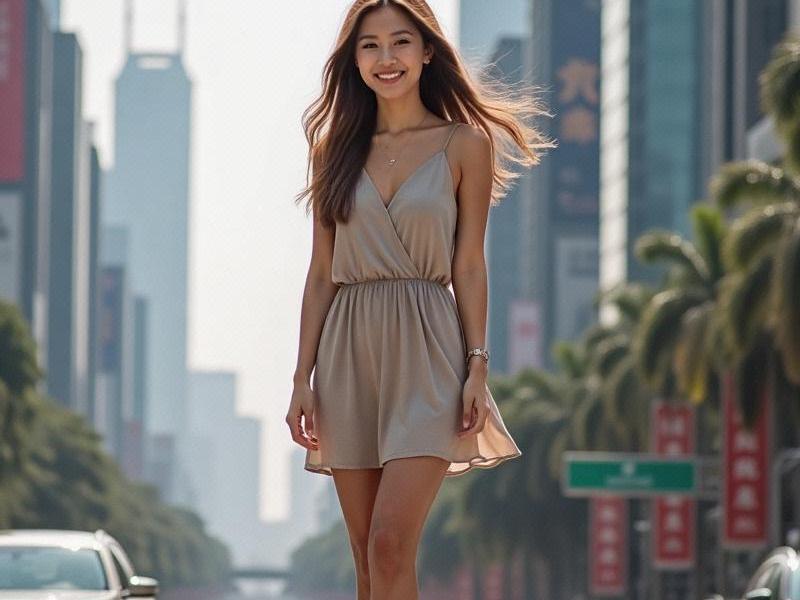The Shanghai Modern: How China's Cosmopolitan Women Are Shaping 21st Century Femininity
⏱ 2025-07-05 14:12 🔖 上海娱乐对对碰
📢0℃

Section 1: The Shanghai Woman Archetype
Historical context:
- 1920s "Modern Girls" of the Jazz Age
- Socialist-era working women (1950s-1970s)
- Post-reform professional class (1980s-present)
Contemporary characteristics:
- Bilingual education (92% speak English)
- 68% hold university degrees
- Average marriage age: 30.2 (national average: 27.9)
- 43% in managerial positions (national average: 28%)
Section 2: Professional Prowess
上海娱乐 Career landscape:
- Finance district "Iron Roses"
- Tech startup founders
- Creative industry leaders
- Entrepreneurship trends
Notable examples:
- Zhang Xin (SOHO China CEO)
- Peggy Yu (Dangdang co-founder)
- Emerging female fintech leaders
Section 3: Fashion & Aesthetics
Style evolution:
上海喝茶服务vx - Qipao modern reinterpretations
- East-West fusion trends
- Sustainable fashion movements
- Cosmetic surgery statistics (23% have had procedures)
Section 4: Lifestyle & Values
Survey findings:
- 78% prioritize career development
- 62% value financial independence over marriage
- 57% practice regular fitness
- 41% participate in cultural events weekly
Section 5: Challenges & Controversies
上海贵族宝贝sh1314
Social issues:
- Workplace discrimination cases
- "Leftover women" stigma
- Beauty standard pressures
- Work-life balance struggles
Section 6: Global Influence
International impact:
- Fashion week presence
- Business diplomacy roles
- Cultural exchange programs
- Overseas education trends
As sociologist Dr. Li Wei observes: "The Shanghai woman represents China's most complete synthesis of traditional values and global modernity - she embodies the contradictions and triumphs of China's urban transformation."
【时尚观察】从"上海滩"到"国际秀场":解码本土时尚品牌的破圈之路《吴淞江算法:长三角水系的数字孪生》
潮汐密码,智能堤坝,数字圩田,运河区块链,虚拟水网The Shanghai Beauty Revolution: How China's Most Cosmopolitan City is Redefining Asian FemininityShanghai's Feminine Revolution: How the City's Women Are Redefining Chinese ModernityShanghai and the Yangtze River Delta: China's Economic Powerhouse Reimagined弄堂深处:上海城市肌理的百年叙事诗《霓虹基因:上海女子的数字时尚史》
旗袍算法,弄堂区块链,沪语AI,石库门NFT,摩登女郎元宇宙Neon Renaissance: How Shanghai's Entertainment Clubs Are Pioneering Asia's Nightlife RevolutionShanghai After Dark: The Sophisticated Evolution of China's Premier Nightlife EconomyShanghai's Cultural Awakening: How the City Reinvented Its Creative Soul for the 21st Century
《潮汐之间:上海与周边城市的量子纠缠》弄堂与云端:上海美女的"双面魅力"与文化密码从"海上花"到"云顶宴":上海娱乐会所的世纪变迁与文化密码《弄堂晨曦中的她世纪》start
《沪上梧桐年轮志》
树皮皲裂度,落叶堆积量,遮阳覆盖率,鸟巢密度,记忆点强度start
《霞飞路时尚基因图谱》
旗袍开衩高度,高跟鞋跟数,烫发卷度,口红色号,记忆点强度start
《旗袍褶皱的光学编码》
织物纤维,光线折射,色彩心理学,身体语言,记忆点强度start
《百乐门的分子料理》
味觉受体,风味化合物,呈味阈值,味觉适应,味觉记忆start
《苏州河的拓扑诗学》
波纹分形,渡轮混沌,桥墩流形,霓虹突变,数字同胚外滩风云:从"冒险家乐园"到金融心脏的百年蜕变

